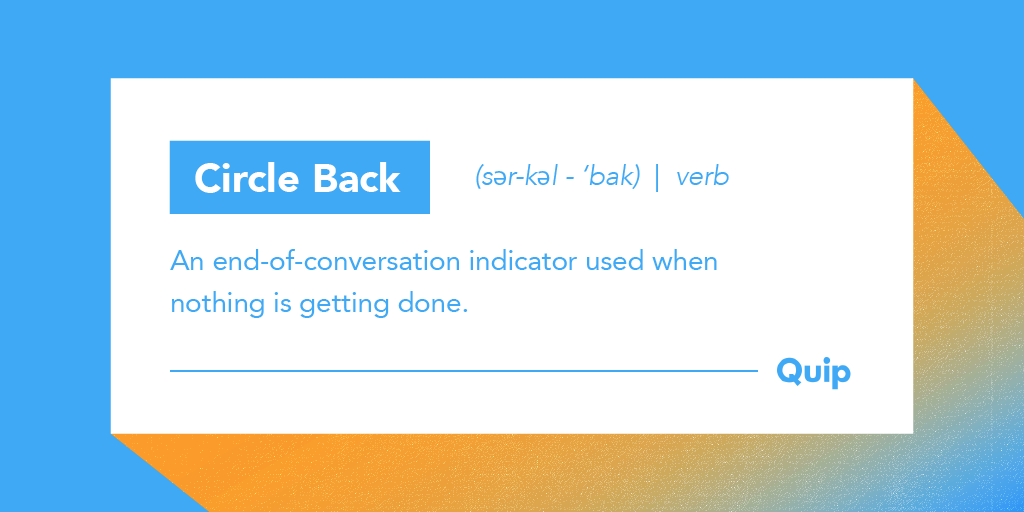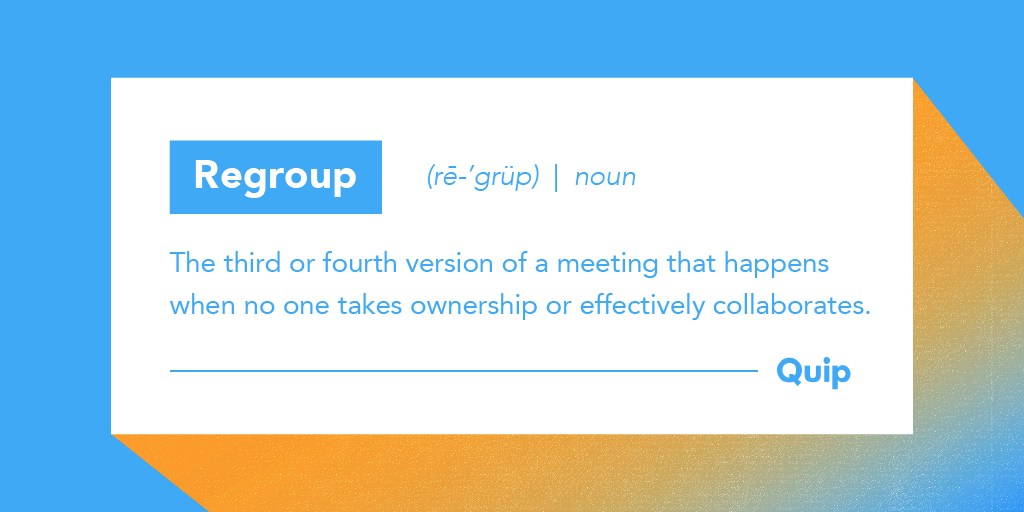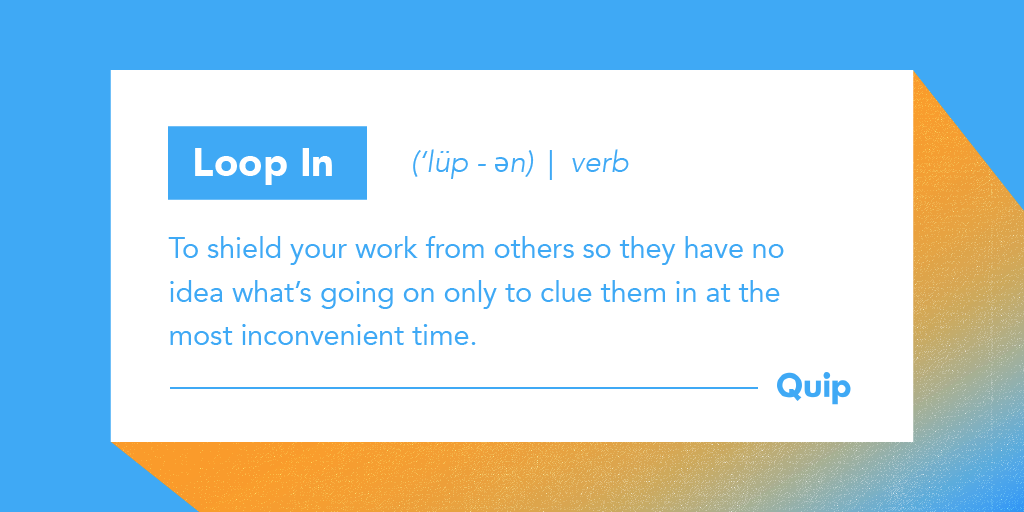8 outdated workplace terms Quip is replacing
Let’s circle back to synergies before we do our gut check EOD (just kidding — but you're cringing, right?).
At Quip, we think working less dumb starts with talking less dumb. We hope that everyone's second native language—business jargon—will soon be reduced to nothing more than fodder “back-in-my-day” workplace nostalgia-lore, much like Rolodexes and fax machines and placing lunch orders or reservations by phone.
We're big fans of Unsuck It, the witty (and reasonably SFW) dictionary, from the good folks at Mule Design, that translates terrible terms like “synergy” and “componentize” into words that people actually use. And we've compiled our own rolling list of terms that don't have to darken our doors (or inboxes or meeting rooms) again, thanks to the magic of Quip's smart productivity and organizational tools.
So let's hash out the first batch/iron out the details/button them up a bit:
Circle back - Ah, circle back, the original productivity killer. Have you noticed that “circle back” actually means “I see you haven't been working on that thing you should be working on, so let's meet later (after you've had more time to not work on that thing you should be working on) to further discuss how you're not working on that thing you should be working on?”
Circling back occurs when there is a disconnect between the idea/decision making and the work: decisions about what to work on or how to work on it take place a different plane than the execution, creating a gulf that requires constant back-and-forth to ensure projects stay on track. Quip let's all teams, such as product, IT, marketing, HR, make decisions together in real time, which closes that gap, keeping everyone out of the cycle of circlings-back. (And it's way more fun, too.)

Offline - We imagine people felt sly when they first started saying “Let's talk about this offline” rather than “Let's talk about this privately and in person, because we both know it's something juicy.” But it's not as fun now that everyone knows what it means. So let's take offline back to its literal meaning, and rejoice in Quip's ability to let you kill time during flights and long subway rides with our unsaved changes tool.
Table it - Sometimes ideas don't pan out. Hey, it happens.
When it's time to kill a project, doc, or plan, just delete it and move on to the next thing—there's no need to continue to waste time on an idea that just won't cut it. Quip is especially effective at enabling you to cut your losses (sorry) because the platform is designed for people to show their work, so there's no need for second guessing by an over zealous believer who keeps grasping at straws (sorry again). Success or failure, the work of every project is right there, on the record.
Regroup - Regroup and circle back are the same. We don't need two different phrases. So let's kill off at least one of them — but preferably both.

Actionable - Say the words “actionable feedback” and we're already bored. You mean “specific direction and a clear set of edits, adjustments, and suggestions for making something better.” or better yet "helpful feedback." We have a hunch that our fixation on feedback that's “actionable” is a result of peoples' tendency to over-discuss how to make something better. So the first step to getting feedback that's technically “actionable” all the time? Simply @-mention people in your projects when you need help, and never deal with long-winded comments and roundabout suggestions ever again.
Facilitate - Nurses don't “facilitate” surgeries, waiters don't “facilitate” meals, and you're not “facilitating” that meeting. In fact, here's a useful productivity exercise for you: after every month review your work calendar and with a critical eye see what recurring meetings aren't necessary/useful and “parking lot” them. Sorry, I mean remove them.
Bandwidth - The range of frequencies within a given band, in particular that used for transmitting a signal. You know, for a device or system — not for a human being.
If you don't have the time or mental energy to help someone out, just say so! Of course, you could also cut down on the time and mental energy it takes to send emails back and forth, importing files to drives, and sitting in meetings...just sayin.'
Loop in - Sometimes a project needs extra help or fresh ideas. So you pull in an unsuspecting person from another team or account, spend a lot of time on-boarding them, briefing them, and waiting for them to feel less overwhelmed enough to start pitching ideas.
Welcome to “looping in,” where neither the person doing the looping in nor the person being looped in wins. Time gets wasted on both sides, resulting in frustration and wounded projects. It'd be pretty cool if there was a collaboration tool that lets people be in the loop from the start, huh?

That's where Quip comes in. We can tell you more about how Quip helps your teams work less dumb, or you can skip right ahead to the part where you sign up for free.
